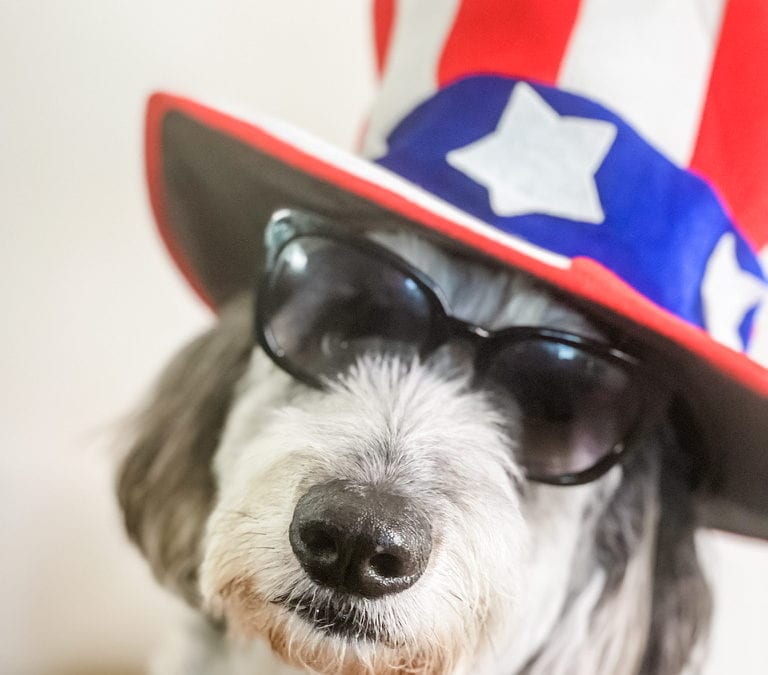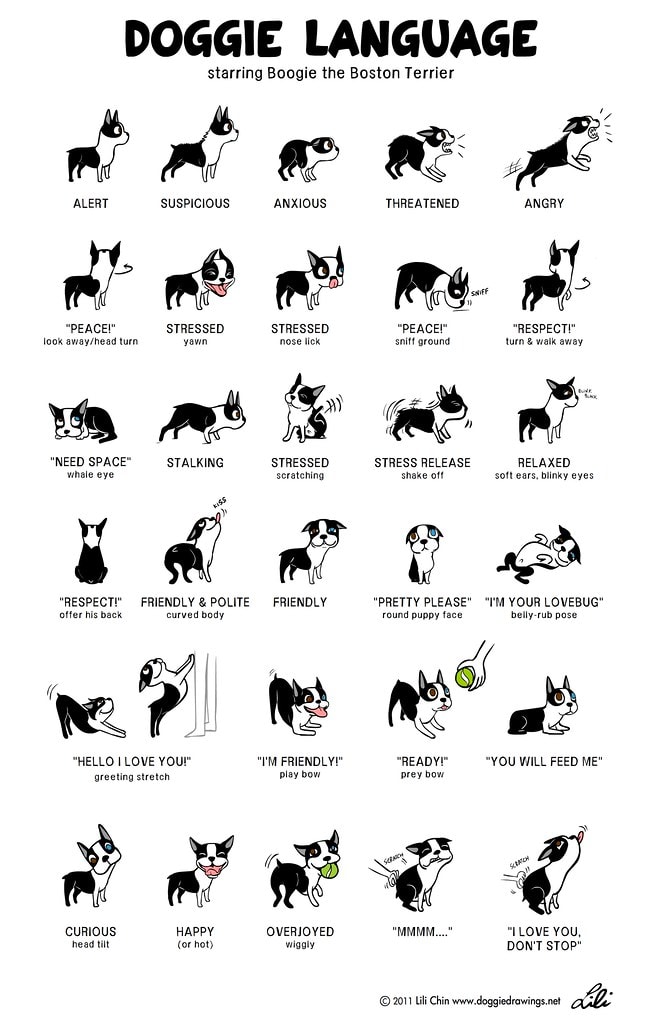Fireworks and Dogs: Keeping your dog safe on the Fourth of July
More dogs are lost over the 4th July holiday than any other time of year.
The loud bangs of fireworks trigger a startle reflex in your dog, which sends adrenalin rushing through their body, making your dog more liable to bolt through fear. Running away from the sound is a very natural survival instinct.
Dogs experience the world through their senses. Their eyes, their noses, and their ears.
Fireworks stimulate all three of these senses. The eruption of fireworks not only creates loud and sudden booms, but they create flashes of lights and smells of gunpowder.
So fireworks are incredibly overstimulating and scary for many, many dogs.
Let’s look at what you can do to help your dog make it through the fireworks with minimal stress.
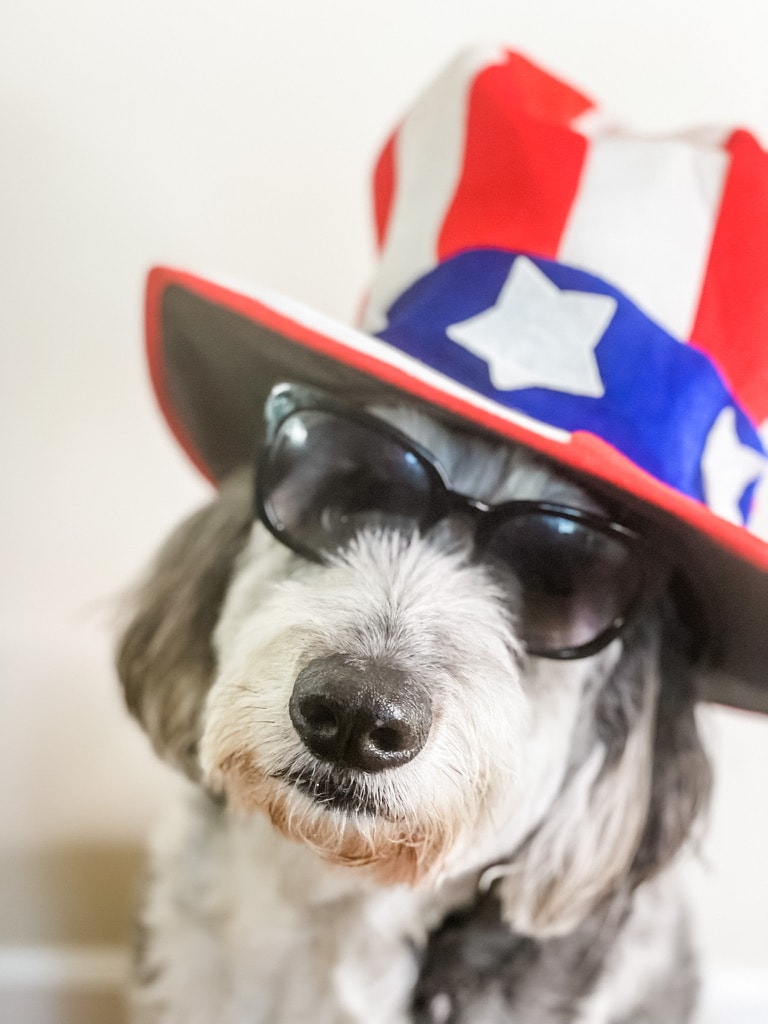
Bentley the Aussiedoodle
7 years old now, and developed fear of fireworks after he turned 5 years old.
Dogs experience the world through their senses.
Their eyes, their noses, and their ears.
Fireworks stimulate all three of these senses. The eruption of fireworks not only creates loud and sudden booms, but they create flashes of lights and smells of gunpowder.
So fireworks are incredibly overstimulating and scary for many, many dogs.
Let’s look at what you can do to help your dog make it through the fireworks with minimal stress.
Why are dogs scared of fireworks?
Dogs have incredibly sensitive hearing. They can hear noises four times further away than humans and hear nearly twice the amount of frequencies that we do.
Dog’s ears are controlled by 18 muscles, allowing them to filter sounds into their inner ear more efficiently. Air vibrations create sound, and while humans can’t hear sounds above 20,000 vibrations per second, our beloved canine companions can.
A dog’s sense of smell is astounding.
They have up to 300 million olfactory receptors in their nose and can sniff out a drop of odor in an Olympic-sized swimming pool.
Your dog’s nose is designed to process scents at an incredible rate. The area of a dog’s brain dedicated to analyzing smells is 40% larger than a human’s.
When fireworks explode, they release sulfur into the air. The smell often lingers long after the parties are over on the Fourth of July. You can just imagine how intense that scent is to your dog both during and after all the celebrations.
In addition to all the sounds and smells, your dog is also processing the flashes accompanying the sensory onslaught they experience.
Put all of those factors together, and it makes total sense that fireworks are an extremely stressful affair for our dogs.
How to desensitize your dog to the sound of fireworks
With training, you can desensitize your dog to scary sounds to help keep them safe and feeling more relaxed.
By removing the fear associated with one of the sensory factors your dog is exposed to on the Fourth of July, you can help them find the experience less frightening.
We recommend these two training games to help desensitize your dog to the sound of fireworks.
Boom- Click- Treat
- Grab your dog’s absolute favorite treats
- Load up fireworks sounds on Youtube and begin playing at a very low volume (almost inaudible to us humans)
- After each firework boom, click and treat your dog
- If your dog is relaxed and able to take the treats happily, then increase the sound moderately every 2 minutes
- If your dog shows any signs of stress, then lower the volume or move away from the sound source (more info on signs of stress below)
- During the game, take breaks to play tug, fetch, or whatever your dog’s favorite is while the sounds are still playing
What was That!
- sGrab your dog’s absolute favorite treats
- Start playing with an item that will not make a loud noise when dropped, like a pillow
- When your dog isn’t looking, drop the item
- When your dog looks over, say ‘what was that?’ and treat your dog
- After each drop, progress to a different object that makes a slightly louder noise
- If your dog shows any signs of stress, then return to a quieter object or take a break
Play these game daily in the lead up to the Fourth of July
Signs of stress in your dog
It’s vital to learn the signs of stress in your dog so that you can spot the early warning signs and help your dog out.
Common yet subtle signs of stress include lip licking, yawning, head-turning, whale eye (when you can see the whites of your dog’s eyes), ears back, or food refusal.
Calming products for dogs
There are many natural and holistic products you can try to help calm your dog during periods of stress or upset.
Calming plug-ins and sprays such as Adaptil release pheromones
Thundershirts or anxiety wraps can help some dogs.
Essential oils like lavender can be used, either in a diffuser or simply a few drops on a blanket. Please make sure that your dog isn’t likely to ingest it.
Massage can be hugely relaxing for some dogs.
Image by LiliChin
Remember the calming signals shared above, and watch out for any signs that your dog would rather not be touched.
10 tips to help your dog on the Fourth of July
- Close curtains to block your dog’s sight of the explosions.
- Use white noise to help muffle the sudden bangs
- Prepare enrichment feeders in advance to give your dog something to distract and calm
- If you can, stay home with your dog to provide comfort and security
- If you can’t be home, then ensure your dog is safely contained and unable to escape your property
- Before the festivities start, ensure your dog has had adequate breed-specific exercise to help drain any excess energy. Stay away from anything that gets your dog fired up, as you don’t want to get their cortisol levels raised before the fireworks even start
- Do some training with your dog to help mentally tire them in advance of the celebrations
-
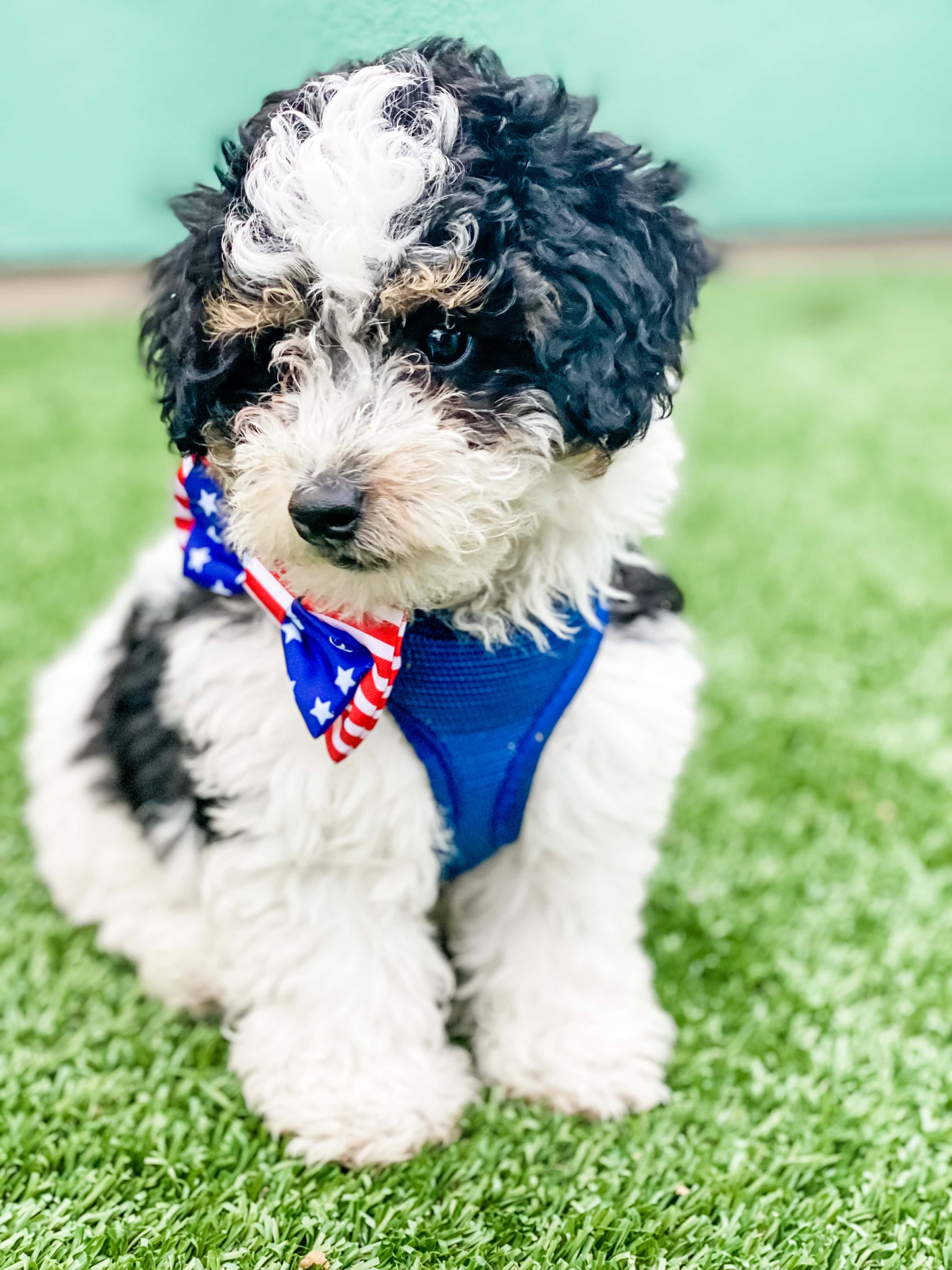
Creating a safe space at home for your dog on the Fourth of July
Your dog may take comfort in being able to hide away from the commotion of the Fourth of July celebrations.
Try to choose an area in your home that is farthest away from the noise, ideally away from windows, and that is secure, so your dog cannot escape. Basements, master bathrooms, and walk-in closets can all work well.
It’s important to get your dog used to their safe space before the event so that they can build up positive and calm associations with spending time in there.
Leave an unwashed shirt or blanket that smells of you can help to provide comfort to your dog.
Play white noise or music with a steady beat to help muffle the sounds of the fireworks. Again, get your dog used to this music in the lead-up to the event by playing it when your dog is calm to create positive associations.
Ensure your dog has access to clean, fresh water at all times. Raised stress levels may cause your dog to drink more.
6 top tips to keep your dog safe from escaping on the Fourth of July
Sadly, on the fifth of July each year, local animal shelters reach capacity. They are filled with dogs who have fled their homes in a desperate attempt to escape the sounds of fireworks.
Tragically some of these dogs don’t make it to shelter. They are killed in their panic to run away from the celebrations.
Help keep your dog safe this Fourth of July with our 6 top tips.
- Check fences and gates to ensure your yard is secure
- Make sure everyone in the household knows that doors need to be kept closed or your dog needs to be safely secured before opening them
- When taking your dog out to the yard for a toilet break, keep them on the lead
- Ensure your dog has a tag with up to date contact details on them
- Make sure your dog’s microchip details are up to date with current contact number and address
- Consider fitting a GPS tracker to your dog’s collar so that you can quickly locate them in the event of an escape
Stay Safe this 4th of July
We hope these tips will help you and your dog to have a safe and relaxed Fourth of July. If you’d like further help or support to help your dog with noise sensitivity or any other issues, then please don’t hesitate to get in touch.
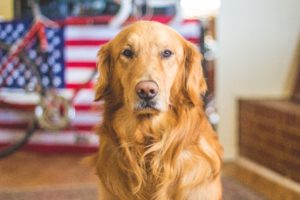
Our fur child has been with CLA since he was 11 weeks, and he will always be a part of their family! From his initial consultation, I knew Yo would be entrusted with our Goldendoodle. We had 10 one-on-one training sessions and each time Orie came equipped with more preferable behaviors. He started attending day care with the other regulars and learned much needed social skills! I don’t trust him anywhere else for training, walking, or weekend sitting! Oh and BONUS, he went on “vacation” last year – first in the family to go to the Grand Canyon! We love Yo and her fellow, highly-trained professionals. We’re even looking into getting another dog since we have such a great training system 🙂

